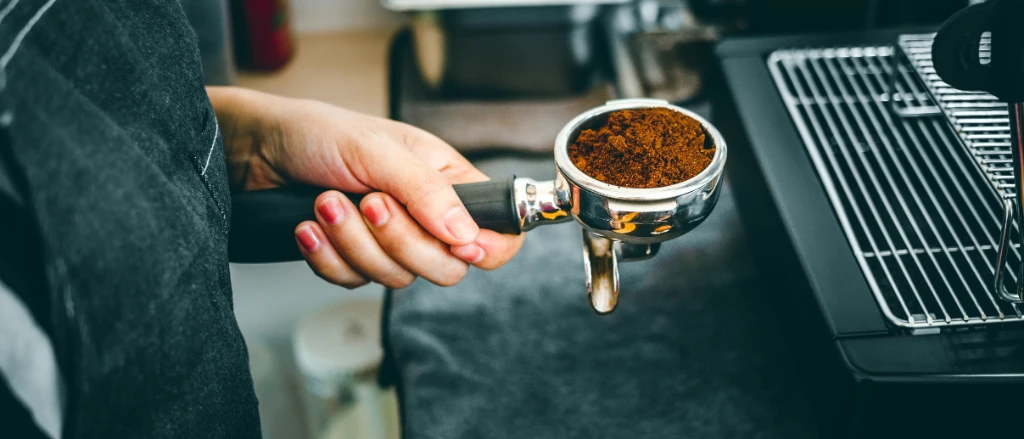
Waste to watt: Brewing a sustainable feature by turning coffee waste into clean energy
From coffee grounds to hard carbon
In partnership with RISE (Research Institutes of Sweden) and Granode, a leader in battery technology, we are transforming coffee grounds collected from our network of clients—offices, workplaces, and public spaces—into bio-carbon. The process involves heating used coffee to 1000°C in a nitrogen environment to create hard carbon, a vital component for battery anodes. After months of research on various blends and roast levels, we are excited to report promising results. Carbonisation yields from collected coffee waste are showing strong potential in terms of conversion to usable material. This approach not only minimises waste but also reduces reliance on environmentally harmful mining for metals like cobalt and nickel, aligning with our commitment to sustainability and innovation.
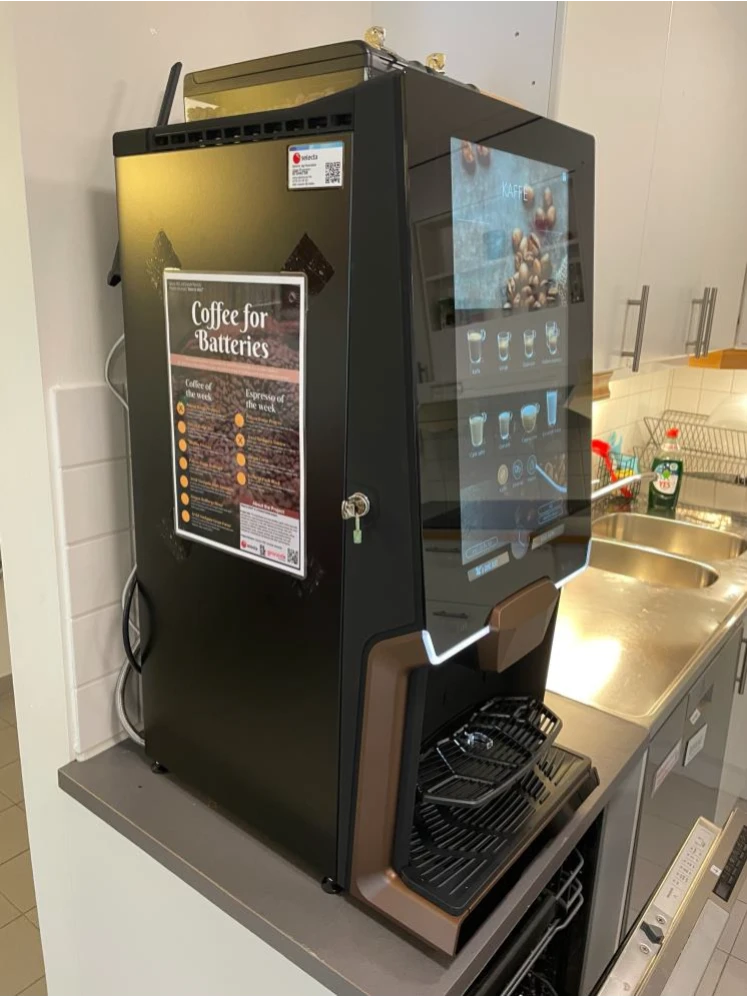
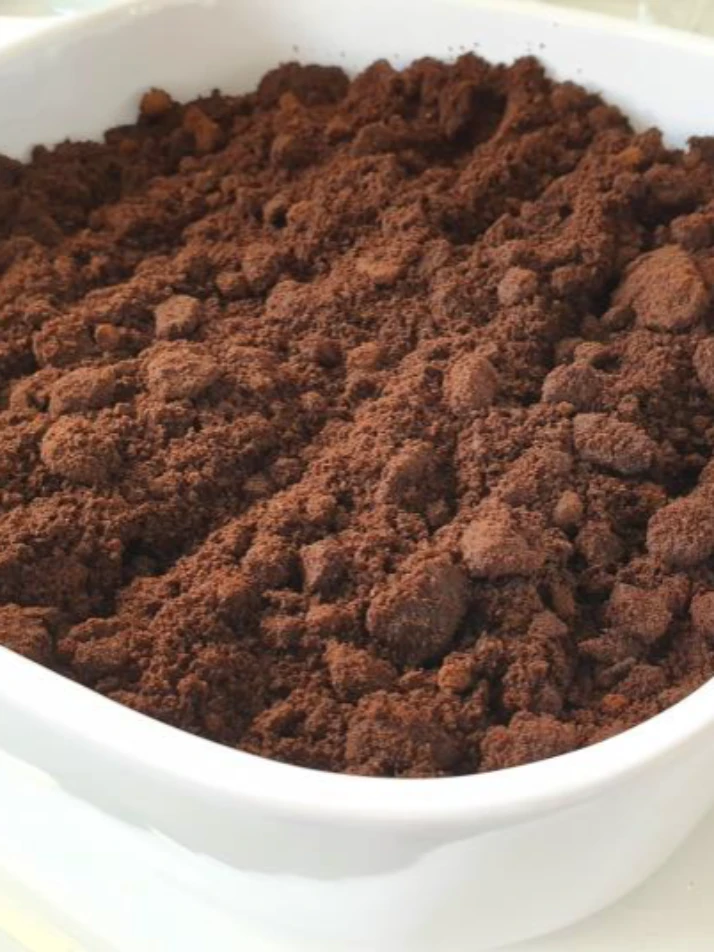
Why this matters
Selecta’s Waste to Watt project aligns with Europe’s goal to build a more self-sufficient, circular economy. By transforming coffee waste—a low-cost and abundant byproduct—into a sustainable, economically viable energy storage material, we are creating a future where everyday waste has an impactful second life. The shift from traditional to bio-based carbon alternatives addresses growing issues in waste management and reduces the carbon footprint of battery production, further supporting Europe’s drive for sustainability.
A new benefit for our clients
Our clients are at the heart of this initiative, and Waste to Watt is no exception. With this program, they can integrate coffee waste recycling into their sustainability goals and become partners in a transformative effort. By recycling their coffee grounds, Selecta’s clients contribute to the production of eco-friendly, cost-effective batteries that could power everything from renewable energy grids to EVs.
This partnership reinforces their environmental credentials and aligns with European ambitions to decrease reliance on raw material imports. Clients are no longer just consumers of Selecta’s services; they are active participants in a broader mission towards circularity and sustainability.
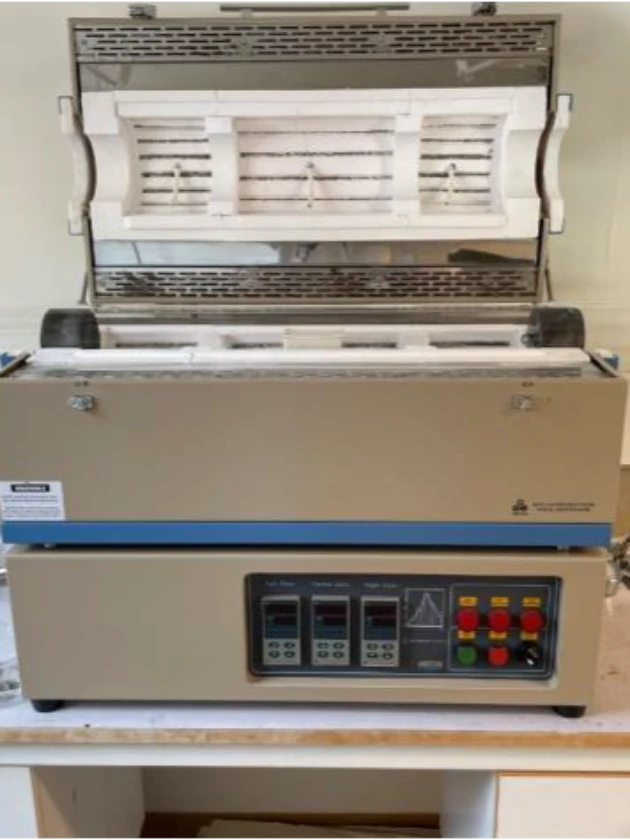
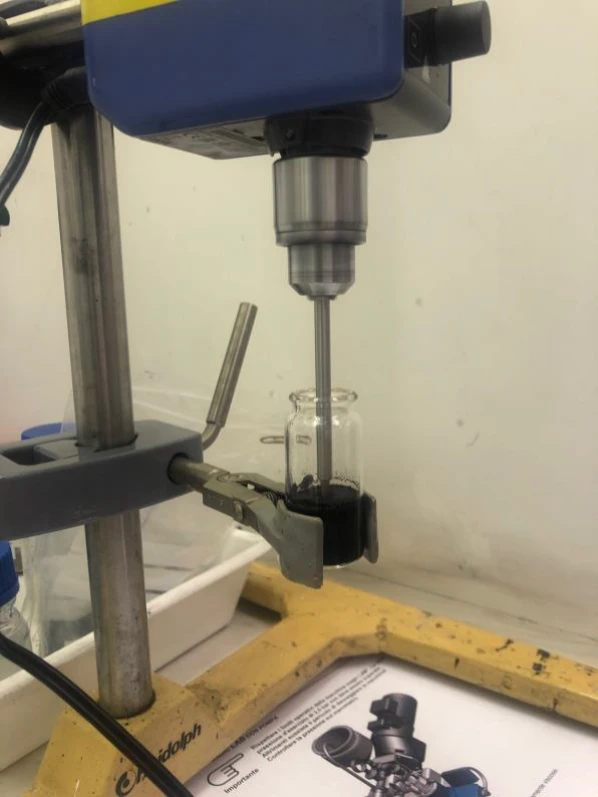
What’s next?
As the lab phase comes to an end, RISE will use the produced hard carbon to test sodium-ion battery applications, while Granode will validate the technology by testing bio-carbon in lithiumion batteries. We will benchmark the performance against traditional materials using coin cell battery assemblies. Both workstreams will conclude by mid-November this year, marking the end of the research phase by December.
A greener, smarter future awaits
The potential impact of Waste to Watt is immense. Not only does it repurpose a common waste product, but it also positions Selecta as a leader in renewable energy. With the rising demand for efficient, eco-friendly batteries in EVs and other renewable applications, Waste to Watt’s solutions now need to be scaled. The project has already attracted attention from Swedish industry press and sustainability advocates who recognise its transformative potential. As we continue this journey, we look forward to sharing updates and exploring larger-scale applications. By participating in this initiative, Selecta and our clients are helping to shape a greener, more sustainable future—powered by something as simple as coffee grounds.
Please note
Our solutions are ideal for medium to large companies with over 100 employees plus universities, hospitals, hotels, and leisure facilities throughout the UK and Republic of Ireland. We also support cafés and retailers serving over 25 hot beverages a day. To ensure we recommend the best-fit solution, we take the time to understand your unique needs and preferences, rather than offering a standard price list.